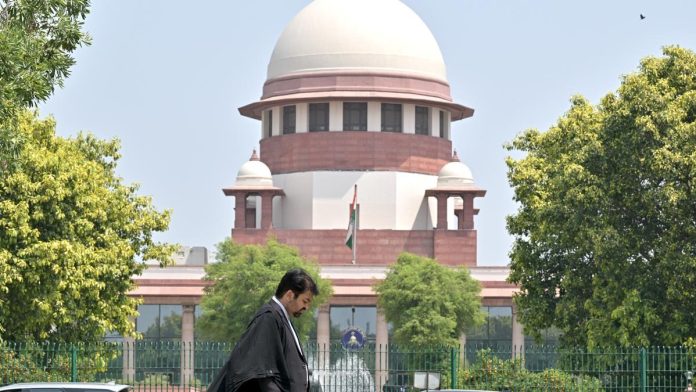The Supreme Court is scheduled to hear final arguments on the controversial Waqf Amendment Act, 2025, on May 15, under the bench of the incoming Chief Justice of India, Justice B.R. Gavai. Outgoing CJI Sanjiv Khanna, set to retire on May 13, declined to pass interim orders or reserve judgment in the latest hearing, reported the New Indian Express.
In a strong counter to the Union Government’s affidavit, the All-India Muslim Personal Law Board (AIMPLB) submitted a 116-page rejoinder, labelling the government’s claims as misleading, unconstitutional, and detrimental to Muslim control over waqf properties. The AIMPLB accused the government of distorting data, undermining constitutional protections, and eroding the autonomy of religious endowments.
Key Points Raised by AIMPLB:
1. Data Manipulation & Double Counting:
The AIMPLB accused the government of artificially inflating the count of waqf properties from 3.3 lakh (as per the WAMSI portal in October 2024) to 6.65 lakh in its affidavit, by counting each building in a waqf estate as a separate entity—what the Board terms “statistical manipulation.”
2. Unconstitutional Amendments:
The Board rejected the government’s reliance on the “essential religious practices” doctrine, citing landmark Supreme Court verdicts (Puttaswamy, Navtej Johar) that affirm broader individual freedoms under Articles 14, 19, and 21.
3. Section 3C – Arbitrary State Control:
This provision allows government officers to declare a waqf property as non-waqf. AIMPLB warned this undermines due process and lets the state act as “judge in its own cause.” Delayed or biased reports by officers could result in irreversible waqf land loss.
4. Expansion of ‘Government Property’:
The amendment extends the definition of government land to include properties under panchayats and municipalities, increasing the risk of large-scale reclassification of waqf land.
5. Section 3D – Targeting Mosques via Heritage Law:
AIMPLB said the misuse of the AMASR Act to declassify heritage mosques as waqf undermines their religious character and control.
6. Dilution of Muslim Representation:
The Board raised concern over reduced Muslim presence on Waqf Boards and Councils, with government-nominated and non-Muslim members replacing elected Muslim leadership.
7. Scrapping of ‘Waqf by User’:
AIMPLB opposed the removal of protection for properties used as mosques or graveyards over generations without formal documentation, citing judicial precedents upholding waqf by user.
8. Flawed Legislative Process:
The Board criticized the rushed and opaque process of the Joint Parliamentary Committee and late-night parliamentary passage, alleging it ignored dissent and bypassed democratic scrutiny.
Calling the Waqf Amendment Act an attack on a 125-year-old legal framework, AIMPLB has urged the court to declare the Act unconstitutional and immediately stay its implementation. All eyes now turn to the May 15 hearing for a landmark verdict on religious freedom and property rights.




